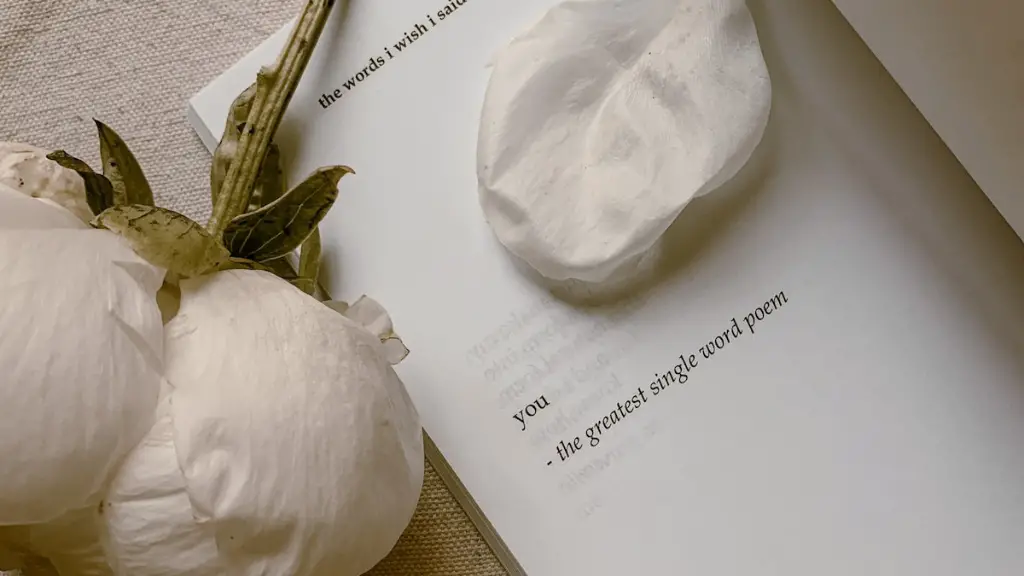So, you’ve got your playlist of poems ready, but you don’t know where to start: Where should I publish my poetry?
The answer is really going to depend on what type of recognition and audience you’re looking for. Here are a few of the main options for getting your work out there.
Literary Journals
For poets looking for an audience of literary insiders and emerging as literary authority, the traditional route of submitting to journals is the way to go. The creative editors at these publications are looking for previously unpublished poetry that speaks to the publication’s aesthetic and readership — so doing your research ahead of time is key. Literary magazines have provided a platform for poets from Walt Whitman to Adrienne Rich to Louise Glück and many more who’ve come before you. You can search for journals on Poets & Writers’ Magazine Finder; and if you’re having trouble finding the right fit, you can always consider submitting your work to The Cincinnati Review, which accepts unsolicited poetry manuscripts and has a nasty little habit of taking the torch of emerging poets who debut in their pages.
Blogs and Local Publications
Maybe you’re not looking for literary acclaim. Maybe you just want to get your work out there, to see it floating around on screens and find your words on city streets. This kind of publication often comes in the form of local publications, from blogs to newsletters and more. Putting yourself out there by cold-emailing outlets you admire or by utilizing existing networks — such as a local artist collective — is a great way to start, since the local energy may be more welcoming than a national publication. Reach out to ask about publishing your work or a feature about you, and take it from there.
One-Off Publications
For immediate gratification, the one-off publication can serve as your perfect home. This might comprise one-off zines, pamphlets or e-books, where you curate and design the publication all on your own — which could be as simple as a straightforward Word document. From there you can decide how you want to distribute the document with your words, whether that’s online or offline. As a bonus, you can choose to monetize the poem and keep the profits, or keep the process charitable and hold a fundraiser or donation-based link on your website.
Social Media
The digital age has brought forth a plethora of platforms on which to share your work. Social media provides an instantaneous, ever-increasing audience to view your work and share it with friends and peers. Have a poem about your favorite cocktail? Tag a few local Instagram accounts for maximum impact. Got a few funny haikus about why you’re constantly late? Tweet them with the funny hashtag of your choice — and don’t forget to get others to join in the fun. While deeper forms of poetry can still perform well on social media, it does tend to be the short-form stuff that BAMFs its way around the internet.
Self-Publishing
For total control — in terms of price, exposure, and vision — self-publishing is your dream come true. Self-publishing isn’t just a remedy for the overly motivated poet, it’s a proven promotion mechanism, often leading to unheard of exposure coupled with potential reviews, following, and general notoriety. Options range from the Amazon Kindle Publisher to the Airship Initiative, with many, many more popping up each year. Before picking your platform, look around to find an outlet that fits the price and look you’re going for — don’t settle for the first thing you find.
Book Awards
Have you written a book-length poem? Consider submitting it to book awards! Awards range from the illustrious National Book Critics Bowl to the Walt Whitman Award. There is no shortage of contests either: keep an eye out for smaller or regional prizes, which often offer another excellent path to publication and recognition.
Bundling Your Poetry
Turning your poetry into other forms of media is another avenue for success. Songs and Instrumentals, soundscapes, short films, and more all make great homes for poems. They can be a great source of supplemental income, opening the door to the bigger opportunities that you’ve had your eye on.
The Poetry Reading Circuit
Whether you’re reading it aloud or have someone else do the work for you, there is no better way to publish your poetry than to just get up and read it. Sign up for poet run open mics, contact your local neighborhood arts organization, or if you feel ready, send an invitation to your own reading. The power of hearing words aloud is undeniable and could be your greatest asset.
Competitions
The university crowd often dominates the poetry awards market, so don’t be intimidated if you didn’t go to school for writing. Competitions allow entry and expose your work to a larger audience quickly. Keep an eye out for annuals such as the National Poetry Series or The Poetry Society of America’s National Participant Competition, which often open the door to submitting your work for publication.
Anthologies
Compiling a collection of poems is a great way to publish multiple pieces under one cover. Not only does the anthology format allow for a wide range of motifs and expressions, it also provides authors with a plethora of venues for publication – from academia to self-publishing, and everything in between. Try submitting an anthology to one of the smaller presses or university presses, who are often on the hunt for beautiful collections. Anthologies come with a unique incentive of being much more willing than journals to anthologize work that is previously published.
Academic Journals
For poets, the academic world provides a fantastic platform: if you’re ready to take the plunge and make your poetry part of the scholarly canon, then you should consider submitting your work to academic and research journals. The poetry world is full of inspiring outlets, and though the process of publication can be daunting, the end-result is likely to be well worth the effort.
Master’s Theses and Dissertation
Lastly, if you want to add to your academic pedigree, you can submit your own poems as part of a master’s thesis or dissertation. Many poets—Terrance Hayes and Joy Harjo, to name a few—have gone this route and gone on to publish books of their own. The benefit of getting your poems out there in this format is the heft Granted to them by the legitimacy of academic work.
The Road to Publication is Personal
Whatever route you take to get your words out into the world, it’s important to remember that there’s no “right” or “wrong” path to publication. Creativity is, by nature, very individual. Definitely have a mission when you’re starting out — but don’t let that limit you. Who knows, you may be surprised by the result.



